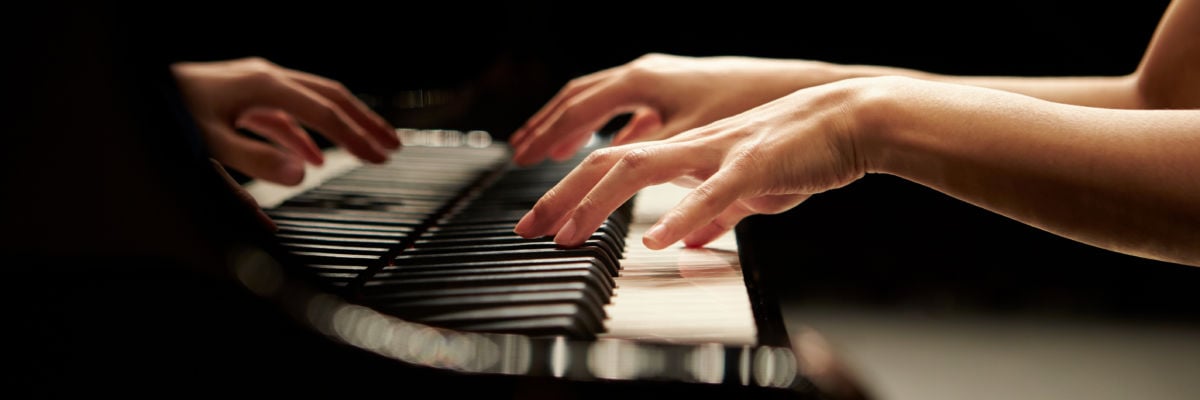
There has been recent attention on the topic of liturgical music, after the diocese of Jefferson City released a memo forbidding the inclusion of certain songs and composers at Mass, particularly those found doctrinally problematic by the USCCB. Naturally, that brought strong emotions from some, but we ought to pause and consider what music during the Mass is for. It’s only then that this prohibition can be properly understood.
A common misunderstanding, even if rarely said aloud, is that the music is there to entertain parishioners. After all, that’s what most music outside the liturgy is aimed toward. In a similar vein, some think music is present as a type of filler, preventing silences that might otherwise seem awkward when there is nothing for parishioners to “do,” such as when the priest is cleaning the vessels.
What we are missing from all of this is that the Mass is meant to be prayed, by both clergy and laity. The music of the Mass is not meant to entertain during the parts where people are bored; rather, it becomes part of the liturgy. The Catechism explains:
The musical tradition of the universal Church is a treasure of inestimable value, greater even than that of any other art. The main reason for this pre-eminence is that, as a combination of sacred music and words, it forms a necessary or integral part of solemn liturgy (1156).
Sometimes the word “participation” is used in reference to the laity at Mass, and what that means is often misinterpreted. We participate both interiorly and exteriorly during Mass. Our internal participation is done by praying the Mass, which is an act of worship. Our exterior participation involves moving our bodies to teach our soul of the disposition it should have interiorly. So our kneeling or our singing should express and enhance our prayer to God. They should reflect what ought to be happening inwardly.
Therein lies something significant. The music is not about us; it’s about him. The music, like everything else at Mass, should be focused on the Transcendent, not on us or what we might like to listen to. Our personal favorites are not at issue, but rather, what is the most reverent, beautiful music that we can offer to God in worship.
Our Church has a beautiful repertoire of chant and polyphony that stretches the centuries. We do not lack choices. Further, that which is sacred does not have to be complex. There are broad options for choir directors to choose, based on the experience level of their choirs, without sacrificing reverence.
Although a quiet daily Mass can be a contemplative experience that is fruitful in terms of prayer, the fullest version of the Church’s liturgy is one in which the Mass is sung. Sacred music can be seen to clothe the liturgy in beauty, offering everything that we have in one complete act of worship.
When we come to understand what music achieves within us, we can then say that bad music is not spiritually neutral, because it affects how we think, feel, and act toward God, the Church, and the liturgy. If our music is ugly, doctrinally unsound, and not serious, it conveys an attitude of those things in the Mass. It affects all of us, for we are all affected through our bodies. Remember that this is why the external matters, whether that be our kneeling or simply keeping our hands together in prayer. These are postures and gestures that communicate and instantiate what we are attempting to do and how we should feel. Likewise, when we sing, we should be communicating the truth about who God is and what he is owed.
If these things affect us, as catechized adults, all the more will they affect children and those who do not understand the Faith well. We act in accord with what we believe, so if the atmosphere of the Mass conveys an attention to the people’s entertainment over the worship of a transcendent God whom we respect and love, it matters.
In fact, the idea that the Faith is for juvenile, intellectually deficient, morally primitive people is the claim of many atheists. It’s thus scandalous when our choices demonstrate an agreement with that fraudulent assessment. Our faith is rich and deep enough to have built the Western world. We ought to champion our centuries-old traditions rather than attempt to ingratiate with the modern world in the embrace of what is trendy.
When we think of appropriate music for Mass then, we must think of appropriate music for God. We should ask questions like, “Does this music convey a sense of transcendency?” or “Does it sound like prayer?” or “Does it bring us out of ourselves?”
Remember that this is not simply about the lyrics of a hymn. For example, ancient, beautiful text overlaid on carnival tunes could hardly be called sacred. Throughout the ages, the Church has provided guidance on which instruments are acceptable for the liturgy. The organ has always been the primary, favored option, after the human voice, whereas bands and other such instruments have been considered inappropriate as deliverers of sacred music.
The beauty, prayerfulness, and nobility of the Mass are in no small way influenced by the sacred music that accompanies it. If we wish to join together in appropriate worship at the re-presentation of Our Lord at the Mass, we must acknowledge the majesty that is before us. We do that in every facet of the liturgy—wrapped in beautiful, sacred music, and made as a solemn offering.



